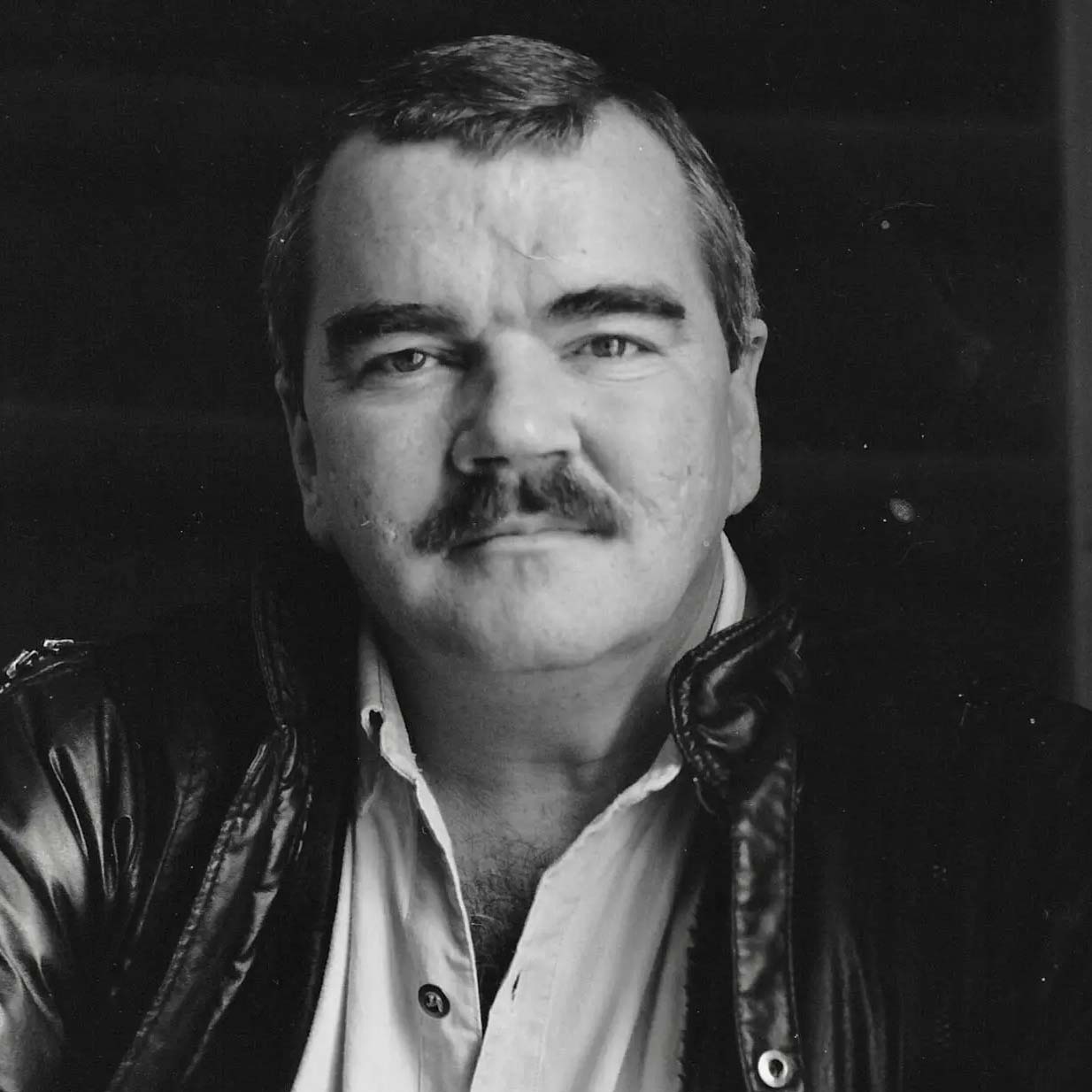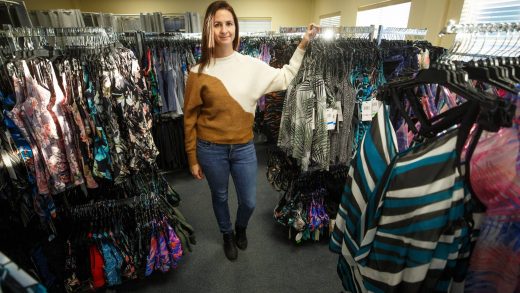
Those who knew Byron O’Donnell will never stop telling stories about him.
The Canadian musician lived a beautiful life through his music and faith, but also a complicated life. There were broken relationships, struggles and hard times — some self-inflicted. However, through it all, there was a search for meaning.
O’Donnell could write anything, from poetry and prose to profound lyrics about heartbreak and spiritual longing to entertaining upbeat tunes about being addicted to Tim Hortons coffee and wishing the Toronto Maple Leafs would win the Stanley Cup.
SUPPLIED Larry Campbell (left), Byron O’Donnell and Christian musician Steve Bell, who said Byron was ‘deeply intelligent and humorously so. He had a refined vocabulary.’
A melodically inclined composer and an outstanding wordsmith, O’Donnell wrote songs people connected to right away. He had a natural gift and music was the centre of his world.
“When it came to music, my father had soul,” says son Will O’Donnell, remembering band rehearsals with friends in the family home. “Growing up, our household was full of music.
“The only time I saw him really upset at all of us, we were rehearsing. He came in angry that we weren’t loud enough. He wanted it louder, more passionate,” Will shared during the eulogy.
Born March 6, 1949, in McNamee, N.B., the award-winning musician and composer lived and travelled across Canada.
His childhood was spent in the Northwest Territories. At 18, he was hitchhiking across Canada.
His musical journey began in British Columbia, where he quickly became a sought-after vocalist. He worked with television shows, wrote for children’s acts, performed at folk festivals, shared the stage with Toronto band Barenaked Ladies and, at one point, opened for U.S. country music legend Conway Twitty.
SUPPLIED Musician and songwriter Byron O’Donnell died in April at the age of 74.
There were tours, endless gigs, several bands, and producing and mixing albums for other musicians.
O’Donnell spent most of his life learning on the fly. He never took lessons but he’d learn and absorb everything he could from other musicians. The vocalist would eventually learn to play bass, guitar and piano.
O’Donnell was first married in Alberta, where daughter Leah was born. When that marriage ended, he found himself traveling more, eventually landing in Winnipeg, where a second marriage brought his son Will.
His life as a composer of country and rock songs for himself and other artists brought him fans around the country.
In his last hours in Dryden, Ont., where he’d found his final home, hospital nurses created a fan board collage in his honour. The father and grandfather died April 8.
“We grew up with very little,” says Will, recalling one Christmas when his father sold a prized guitar to buy presents. “My parents were good at masking the fact of how poor we were.
SUPPLIED Byron O’Donnell
“His work meant that he was out until three in the morning hauling around this gigantic bass amp. There were transitions into different types of work, jingle-writing for a while. When he tried to take a normal job, it was never quite normal.”
O’Donnell’s exuberance and appreciation of music led to a vigorous appreciation of many things.
“My dad would show us each part, teach us some riffs, give us all something that we could build on, understand a melody and structure,” says Will. “He was also an interesting chef. He would figure out recipes. He was fascinated by other cultures. We never had boring food.
“He helped me appreciate different people from different walks of life… He would show me as much as he could — to be open-minded — and lessons in compassion and love… His triumphs were fascinating. All my friends just fell in love with him instantly.”
Christian musician Steve Bell met O’Donnell in the early 1980s, and together they played in nightclubs and wrote music over several years.
“Playing in his bands, you’ll never laugh harder,” Bell recalls. “He was deeply intelligent and humorously so. He wrote a lot of comedic songs, irreverent. I can’t repeat them. Super bar tunes that had people howling. He read a lot of literature. He had a refined vocabulary. He was a very, very smart man.
SUPPLIED Byron produced several albums for other musicians, including 10 Bucks on the Road, a band that featured Steve Warren, Rick Smith and Glenn Scheibler.
“When he moved to Dryden, he always stayed in touch. He’d call and say, ‘I prayed for you.’”
For a time, O’Donnell’s alcoholism landed him on the streets, leaving a wake of loss and shattered relationships.
“He got to know my priest, and started coming to church on a regular basis,” says Bell. “That faith really did mean a lot to him. He never complained, he never played the victim card, he knew God was with him… That spiritual longing is throughout his songs.”
By 2010, O’Donnell had found sobriety. It was then he decided to get baptized at All Saints Anglican Church in Winnipeg.
Bell performed a concert in Dryden at the end of February, and arrived early so he could spend time with his friend.
“He did get under your skin; you did love him and he did love you. If you were under his care, you knew it. He was super-encouraging. He would never be jealous of someone else’s success; he’d phone and say, ‘I’m so proud of you.’ He had such a big impact,” Bell says.
SUPPLIED Byron, seen here with his son Will and Cary Jakobson, grew up in the Northwest Territories.
Will says he will take the bright spark that was his father and let it motivate him. He is planning a tribute concert, and looks forward to announcing the show.
“I decided to live the sort of life that gives every person an interesting story to tell about you,” he says.


